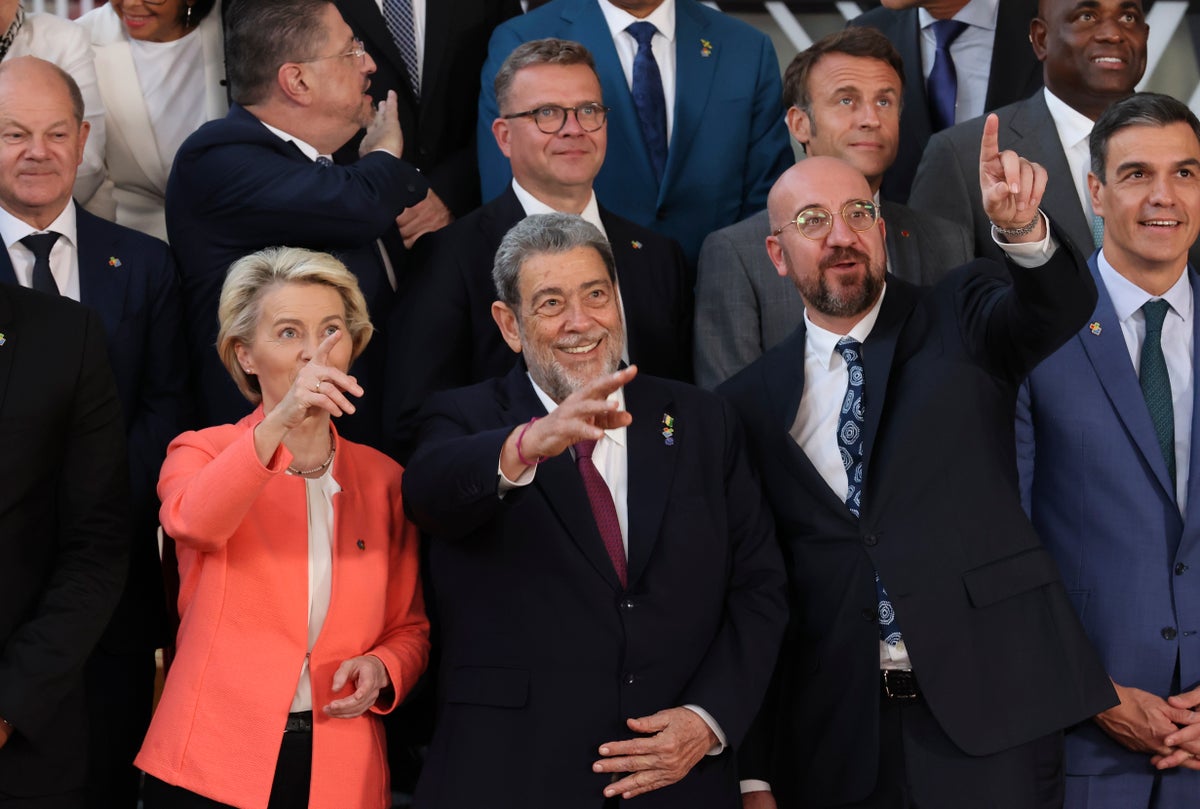
High anxiety set in on the closing day of a summit between European Union and Latin American leaders that was supposed to be a love-in but turned into a diplomatic fracas over the war in Ukraine.
Ambassadors worked through much of the night and into Tuesday morning to find even the blandest text to condemn Russia for its invasion of Ukraine, with talks hung up over the reservations of some Central and South American nations like Cuba, Venezuela and Nicaragua, an EU official said.
“We still need to pinpoint it as close as possible to Ukraine,” said the official, who asked not to be identified because talks were still ongoing.
The long-anticipated summit, eight years after the previous one, descended into a standoff over who would blink first over an issue that a vast majority of the 60 nations attending had already agreed on in several votes at the United Nations and other international institutions.
While the 27-nation EU wanted the summit to center on new economic initiatives and closer cooperation to stave off surging Chinese influence in the region, several leaders of the 33-nation Community of Latin American and Caribbean States brought century-old recriminations over colonialism and slavery to the table.
“Most of Europe was, and still is, overwhelmingly the lopsided beneficiary in a relationship in which our Latin America, and our Caribbean, have been and are unequally yoked,” said St. Vincent and the Grenadines Prime Minister Ralph Gonsalves, who holds the CELAC presidency.
The diplomatic defense of Ukraine and the condemnation of Moscow is everyday staple for EU nations, but many Latin and Central American governments have taken a more neutral view to a conflict in Europe that for them in only one of many blighting the world.
While the EU pushes for strong words on the war, Gonsalves said that “this summit ought not to become another unhelpful battleground for discourses on this matter, which has been and continues to be addressed in other, more relevant fora.”
The result was that long-stalled trade agreements — like a huge EU-Mercosur deal — will likely be no closer to resolution when the leaders wrap up their summit Tuesday afternoon.
If something were on show, it was Central and South America’s increased confidence, boosted by a huge injection of funds from China and the knowledge that their critical raw materials will become ever more vital as the EU seeks to end an excessive reliance on Beijing’s rare mineral resources.
Their last such encounter was in 2015, and since then the COVID-19 pandemic and Brazil’s three-year departure from the 33-nation CELAC group had made the Atlantic Ocean separating the two sides seem wider.







